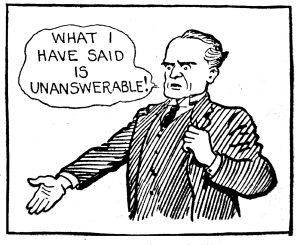In-person event, De Montfort University, Leicester, UK.
Wednesday 17 June – Friday 19 June 2026
Online event:
Wednesday 24 – Friday 26 June 2026
Truth, post truth and damn lies in Comics and Graphic Novels
SUBMISSION DEADLINE 31st JANUARY 2026
Once truth and lies were simple concepts. The 21st century destabilisation of truth has led to the emergence of post-truth. Post-truth is a term coined in the Oxford English Dictionary 2016 in response to concerns over assertions that facts do not matter in political and social discourse so much as emotions and individual subjective truths. There are many comics examples that explore ideas of truth, co-factuality, alternate temporalities as well as conspiracy theories and counter-narratives: Superheroes in science fiction and fantasy narratives explore or play with histories and characters in retcons of storyworlds and multiverses which challenge and are sometimes incorporated into the ‘canon’ (Friedenthal 2017). Joe Sacco’s work chronicles how the news distorts the real-life experiences of people in Palestine (1993) and Footnotes in Gaza (2009) and voices uncomfortable truths in Paying the Land (2020). Drawing the Line: Indian Women Fight Back (2016) is a platform for telling stories of inequality and injustice that have been too easily ignored and uses it to demand change. Barefoot Gen (1973-87) meanwhile, tells a painful history of the affects of warfare. Post-truths are associated with phrases such as ‘fake news’ ‘propaganda’, ‘conspiracy theories’ and gaslighting which implicates the role of memory in the validation of truth. Debates are promoted and circulated on predominantly unregulated social media and in ideologically biased print and broadcast media. News stories whip up hostilities. Scientific and medical research projects are cancelled in response to debunked conspiracy theories. Lies are given as causes for wars or the climactic and ecological devastation of our planet. Histories are rewritten, expunged or tailored to reflect ideological agendas. Hence, Superman’s true weakness is not Kryptonite but gossip and slander, and Wonder Woman’s lasso of truth is getting frayed. This is clearly a rich area for further exploration and so we invite proposals for submission to the in-person or online conferences exploring issues of truth in comics, manga, webtoons and graphic novels. Themes might include but are not limited to:- Multiverses and Alternative or retconned storyworlds
- Judgements made on characters based on truth
- Counter or co-factual chronotopias
- Journalism in comics
- Fluid realities (and) the hyperreal
- Education and educational comics
- Controversies and debates over comics creation and production
- Fandoms
- Revealing or debunking comics histories
- Underground comix
- Ecological debates in comics
- Refugees and immigration
- AI Hallucinations
- Propaganda comics
- Representation and identity
- Comics and the socialisation/indoctrination of children
- Comics in institutional settings
- Comics and the culture wars
- Comics and political correctness
The IN PERSON conference will be held at 17th -19th June.
We require 200 word (max) proposals and 50 word bio (per presenter) for- 20 minute papers,
- themed panels (60 minutes max)
- workshops (60 minutes max)
SUBMISSION DEADLINE 31st JANUARY 2026
The ONLINE IGNCC will run 24th -26th June.
- These will be 20 minute video presentations submitted in advance.
- On the dates of the online conference you will be invited as panels to additionally introduce yourselves, give a 2 minute summary of your research and then answer questions and participate in discussion in an online seminar.
SUBMISSION DEADLINE 31st JANUARY 2026
Due to increasing demands we cannot accept late submissions. We hope to respond by late March 2026—
If you have any queries please email TheIGNCC@gmail.com. Attendees please view the IGNCC Code of Conduct.